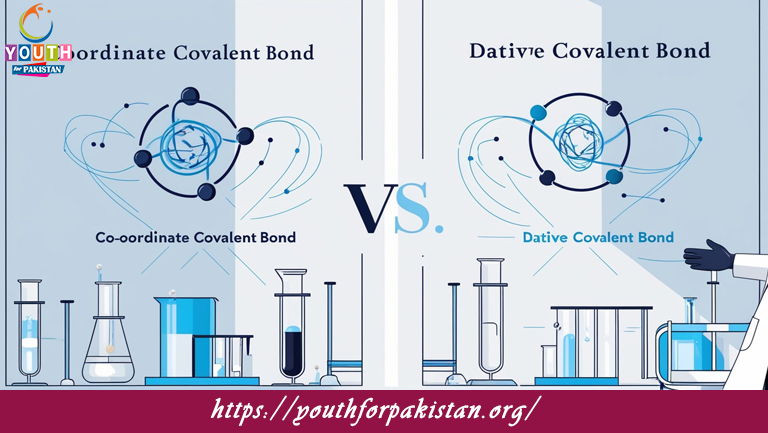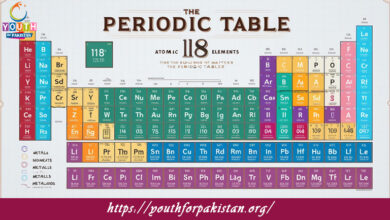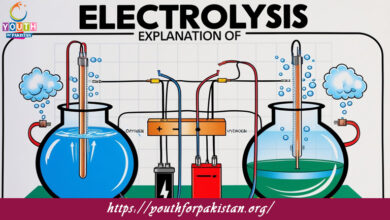Co-Ordinate Or Dative Covalent Bond MDCAT Quiz with Answers

Co-Ordinate Or Dative Covalent Bond MDCAT Quiz; Type of covalent bond where the shared pair of electrons comes from only one atom. The dative bond is an important concept in the formation of certain complicated molecules and also in explaining their reactivity. The concept of dative covalent bonds is very vital in the MDCAT Quiz for the answering of questions, specifically on molecular geometry, coordination compounds, and bonding in transition metals.
H2: Formation of Dative Covalent Bonds
A coordinate or dative covalent bond occurs when a single atom provides both electrons for a bond. Usually, this type of bond is formed if one atom has a lone pair of electrons available and another atom has an empty orbital to accept those electrons. The atom that donates the lone pair is referred to as the donor, while the atom that accepts the electrons is known as the acceptor. One typical example of a dative bond is shown by the ammonium ion formation, NH₄⁺. In this, the nitrogen of ammonia, NH₃, donates a lone pair to a proton, H⁺, to form the bond.
H3: Quiz on Dative Covalent Bond
The MDCAT quiz on dative covalent bonds will test students’ knowledge in the formation of these bonds, their properties, and how they differ from regular covalent bonds. Students will be asked to identify molecules or ions that involve dative covalent bonds, such as ammonia and the hydronium ion (H₃O⁺), and explain the role of lone pairs in bond formation. The quiz will also cover the importance of dative bonds in coordination compounds and their role in the stability of certain molecules. Practicing these quiz questions will help students consolidate their understanding of dative covalent bonds and prepare them for related questions in the MDCAT exam.
H3: Free Flashcard for Dative Covalent Bond
To help solidify their understanding of dative covalent bonds, MDCAT students can use the Free Flashcard for this topic. The flashcards provide quick summaries of how dative bonds form, their characteristics, and key examples such as ammonium (NH₄⁺) and hydronium (H₃O⁺). Regularly reviewing these flashcards will help students recall important details about dative bonding and prepare them for related questions on the MDCAT exam. This tool is perfect for reinforcing the concept of dative bonds and ensuring a comprehensive understanding before the test.

The compound formed when ammonia (NH₃) reacts with boron trifluoride (BF₃) involves a ________ bond.

The lone pair of electrons from an atom in a coordinate covalent bond is donated by a ________ atom.

Which of the following bonds is an example of a coordinate covalent bond in the reaction between NH₃ and H⁺?
Experience the real exam environment with our expertly designed collection of over 25,000 MCQs MDCAT Mock Tests.





